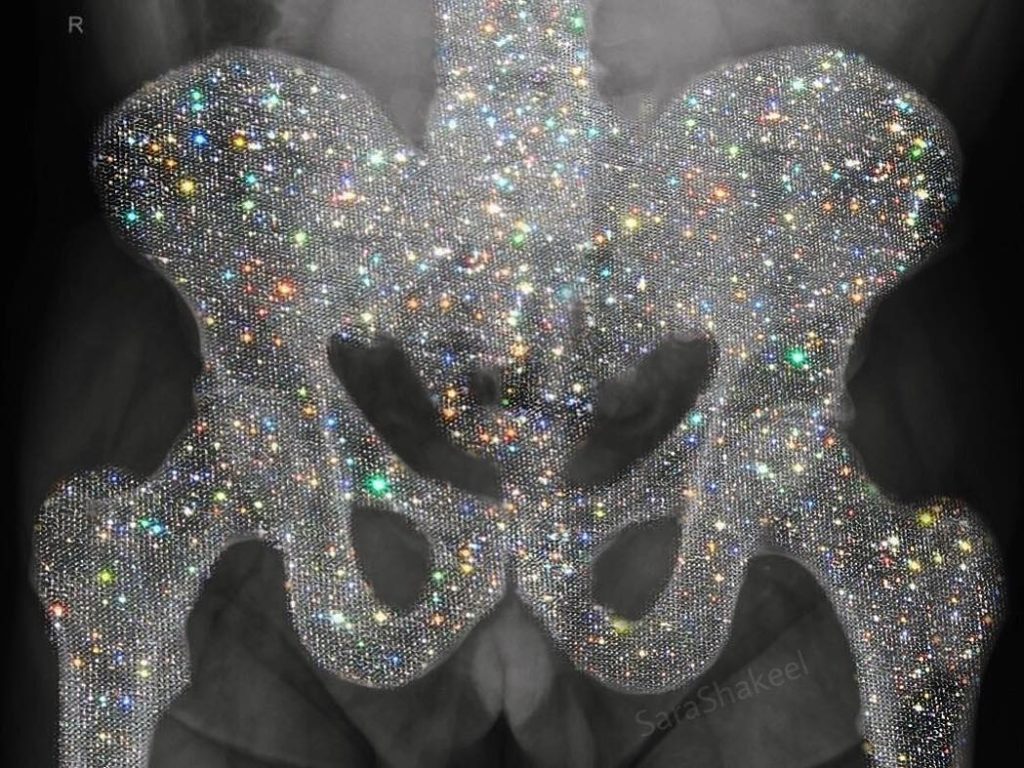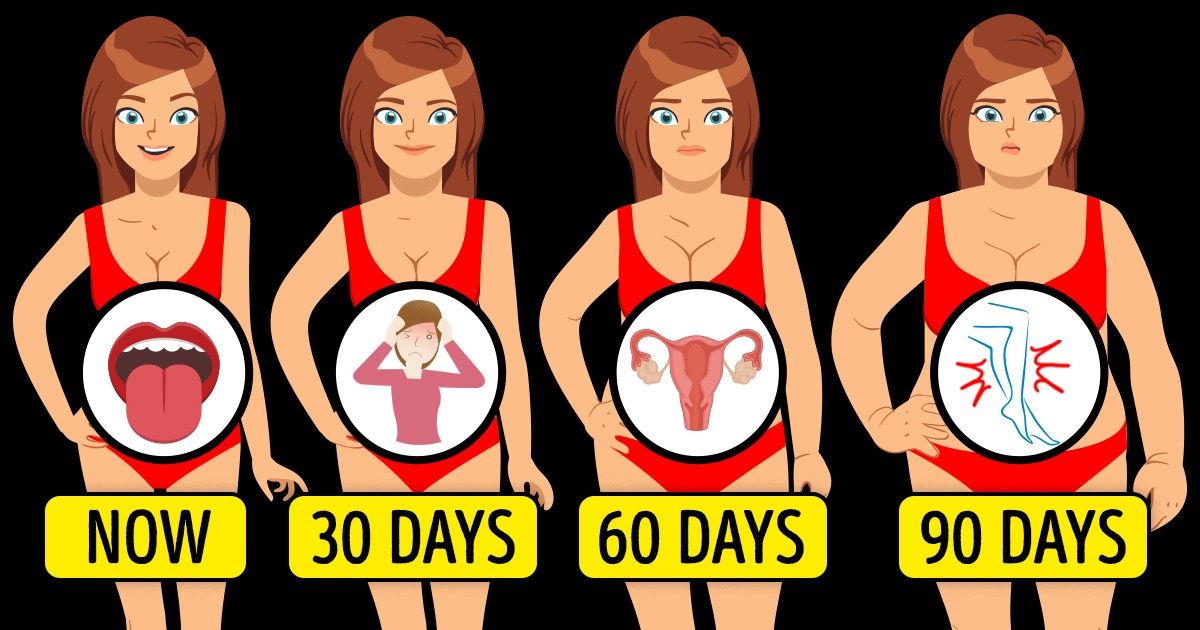Magnesium is an essential mineral that plays a crucial role in over 300 biochemical reactions in the human body. Despite its importance, many people are unaware of how a deficiency in magnesium can affect overall health. From energy production and muscle function to mood regulation and bone health, insufficient magnesium levels can lead to a variety of alarming symptoms.
In this article, we will explore eight clear signs that indicate your body may be lacking magnesium. By understanding these warning signals, you can take proactive steps to address the deficiency, improve your well-being, and potentially prevent chronic health issues. For a deeper understanding of magnesium’s role in the body, check out Mayo Clinic’s magnesium overview.
Sign And Symptoms Of Magnesium Deficiency
8. Sugar Food Cravings – A Warning Signal of Magnesium Deficiency

The Link Between Magnesium Deficiency and Cravings
One of the first signs your body might be signaling a lack of magnesium is an increase in sugar cravings. When magnesium levels drop, your body struggles to regulate blood sugar and insulin, which can lead to an overwhelming desire for sugary foods. This phenomenon is partly because magnesium is involved in carbohydrate metabolism and helps maintain steady blood sugar levels. Without sufficient magnesium, the body may instinctively crave sugar as a quick energy source.
How Sugar Cravings Impact Overall Health
These frequent cravings can contribute to a vicious cycle: consuming high-sugar foods leads to energy spikes followed by crashes, further depleting magnesium levels and worsening the deficiency. Over time, this cycle can contribute to weight gain, insulin resistance, and an increased risk of developing type 2 diabetes. Incorporating magnesium-rich foods into your diet can help stabilize blood sugar levels and reduce the intensity of these cravings.
7. Muscle Soreness and Cramping – Understanding Magnesium’s Role in Muscle Function
Why Low Magnesium Leads to Muscle Discomfort
Magnesium is integral to muscle contraction and relaxation. A deficiency in this mineral can result in muscle soreness, cramps, and even spasms. When magnesium is low, your muscles may contract involuntarily, leading to painful cramps and stiffness that can affect daily activities and exercise performance.
Tips to Alleviate Muscle Cramping
To combat muscle soreness and cramping, consider increasing your intake of magnesium through diet or supplements. Foods like spinach, almonds, and black beans are excellent sources of magnesium and can help support muscle recovery. For more information on managing muscle cramps naturally, refer to this WebMD guide on magnesium myths and muscle health.
6. Insomnia and Poor Sleep Quality – How Magnesium Affects Your Sleep Patterns
The Connection Between Magnesium and Sleep
Magnesium plays a significant role in regulating the neurotransmitters responsible for sleep, such as gamma-aminobutyric acid (GABA). A deficiency in magnesium can disrupt sleep patterns, making it difficult to fall asleep or maintain a deep, restorative sleep. Insomnia and poor sleep quality are common complaints among those with low magnesium levels.
Enhancing Sleep Through Magnesium
Increasing your magnesium intake may help improve sleep quality by promoting relaxation and reducing stress. Incorporating a magnesium-rich snack or supplement before bedtime can signal your body to relax, easing you into a more restful sleep. To learn more about the benefits of magnesium for sleep, visit Healthline’s comprehensive guide on magnesium and sleep.
5. Bone Health and Osteoporosis – The Connection Between Magnesium and Bone Disease

How Magnesium Influences Bone Density
Magnesium is essential for proper calcium metabolism and bone formation. Without enough magnesium, the body struggles to absorb calcium, leading to weaker bones and an increased risk of osteoporosis. Bone disease isn’t just a concern for the elderly; inadequate magnesium levels can affect bone health at any age.
Promoting Bone Health with Magnesium
Ensuring you get sufficient magnesium can improve bone density and reduce the risk of fractures. Alongside calcium and vitamin D, magnesium is a vital component of a bone-healthy diet. For more detailed information on the relationship between magnesium and bone health, explore the National Institutes of Health’s magnesium fact sheet.
4. Acid Reflux and Digestive Distress – Could Magnesium Be the Missing Link?

Magnesium’s Role in Digestive Health
Acid reflux and other digestive issues can be exacerbated by magnesium deficiency. Magnesium helps relax the muscles of the digestive tract, including the esophagus, stomach, and intestines. When magnesium levels are low, these muscles can become tense, leading to increased acid reflux, heartburn, and general digestive discomfort.
Managing Digestive Issues with Magnesium
If you experience frequent acid reflux, consider evaluating your magnesium intake. Incorporating magnesium-rich foods into your diet or taking supplements may provide relief by easing muscle tension in the gastrointestinal tract. For additional insights on magnesium and digestive health, check out this informative article on Healthline’s nutrition section.
3. Stress, Anxiety, and Apathy – The Hidden Impact of Low Magnesium Levels on Mental Health

The Psychological Effects of Magnesium Deficiency
Low magnesium levels have been linked to increased stress, anxiety, and even feelings of apathy. Magnesium is critical for regulating neurotransmitters that influence mood, such as serotonin and dopamine. When magnesium is deficient, the body may have difficulty coping with stress, leading to mood swings and heightened anxiety levels.
Combating Stress Through Magnesium
Addressing a magnesium deficiency can be a key component in managing stress and improving overall mental well-being. Regular physical activity, mindfulness practices, and a balanced diet rich in magnesium can help stabilize mood and reduce anxiety. For more strategies on managing stress and mental health with nutrition, refer to Mayo Clinic’s resources on magnesium and mental well-being.
2. Constipation and Digestive Slowdown – How Magnesium Promotes Regularity
Understanding Magnesium’s Laxative Effect
Magnesium is known for its natural laxative properties, which can help promote regular bowel movements. A deficiency in magnesium may slow down the digestive process, leading to constipation and discomfort. This effect is particularly noticeable in those who already struggle with digestive health issues.
Restoring Digestive Regularity
To alleviate constipation, increasing your magnesium intake can stimulate bowel function and improve overall digestive health. Incorporating foods like leafy greens, nuts, and whole grains, which are high in magnesium, can help ease constipation naturally. For additional tips on combating constipation with magnesium, see this WebMD article on digestive health and magnesium.
1. Severe Headaches and Migraines – Recognizing Magnesium Deficiency Symptoms in Your Brain
How Low Magnesium Levels Trigger Headaches
Severe headaches and migraines can be an alarming sign of magnesium deficiency. Magnesium plays a key role in regulating blood vessel function and nerve transmission in the brain. When magnesium levels are inadequate, blood vessels may constrict or dilate abnormally, triggering headaches and migraines in susceptible individuals.
Preventing Migraines Through Proper Magnesium Intake
Maintaining optimal magnesium levels may help reduce the frequency and severity of headaches. Some studies have shown that magnesium supplementation can be an effective preventive measure for migraines. If you suffer from recurrent headaches, it might be time to assess your magnesium intake. For more scientific insights on the link between magnesium and migraines, visit Healthline’s review on magnesium for migraines.
How to Boost Your Magnesium Levels Naturally: Diet, Supplements, and Lifestyle Changes
Dietary Sources of Magnesium
One of the most effective ways to combat magnesium deficiency is by incorporating magnesium-rich foods into your daily diet. Some excellent sources include:
- Leafy Greens: Spinach, kale, and Swiss chard
- Nuts and Seeds: Almonds, cashews, and pumpkin seeds
- Legumes: Black beans, lentils, and chickpeas
- Whole Grains: Brown rice, quinoa, and oats
- Fish: Mackerel, salmon, and halibut
By integrating these foods into your meals, you not only boost magnesium levels but also improve overall nutrient intake, contributing to better health and increased energy.
Considering Magnesium Supplements
In cases where dietary changes are insufficient, magnesium supplements may be a viable option. It is important to consult with a healthcare provider before starting any supplement regimen to ensure you select the appropriate dosage and form of magnesium. Supplements like magnesium citrate or magnesium glycinate are often recommended due to their high bioavailability. For more detailed guidance on supplementation, refer to Mayo Clinic’s supplement recommendations.
Lifestyle Adjustments to Improve Magnesium Absorption
In addition to dietary changes and supplements, certain lifestyle modifications can enhance magnesium absorption. Regular physical activity, stress management techniques, and proper hydration all contribute to maintaining healthy magnesium levels. Practices such as yoga and meditation not only help manage stress but can also promote overall well-being by improving nutrient absorption and reducing inflammation.
For further creative wellness tips and innovative lifestyle ideas, check out CreativeSide, a resource dedicated to enhancing your health and creativity.
Conclusion: Taking Charge of Your Health by Addressing Magnesium Deficiency
Magnesium deficiency is more than just a nutritional imbalance—it can manifest in various ways, affecting everything from your mood and sleep to muscle function and bone health. The eight signs outlined in this article—sugar cravings, muscle soreness, insomnia, bone disease, acid reflux, stress and apathy, constipation, and severe headaches—are all red flags that your body may be crying out for more magnesium.
By recognizing these symptoms early and making informed dietary and lifestyle choices, you can take proactive steps to restore optimal magnesium levels and improve your overall quality of life. Whether you choose to adjust your diet, incorporate supplements, or adopt new stress management practices, addressing magnesium deficiency is a crucial part of a holistic approach to health.
Remember, every small change you make can lead to significant improvements over time. If you suspect that you might be magnesium deficient, consult with a healthcare professional for personalized advice and treatment options. Stay informed, stay proactive, and embrace the journey towards better health and wellness.
For additional insights on nutrition, supplementation, and holistic wellness, continue exploring reputable resources such as Mayo Clinic, Healthline, and WebMD. Taking charge of your health starts with knowledge—and with the right information, you can create lasting, positive changes in your life.









